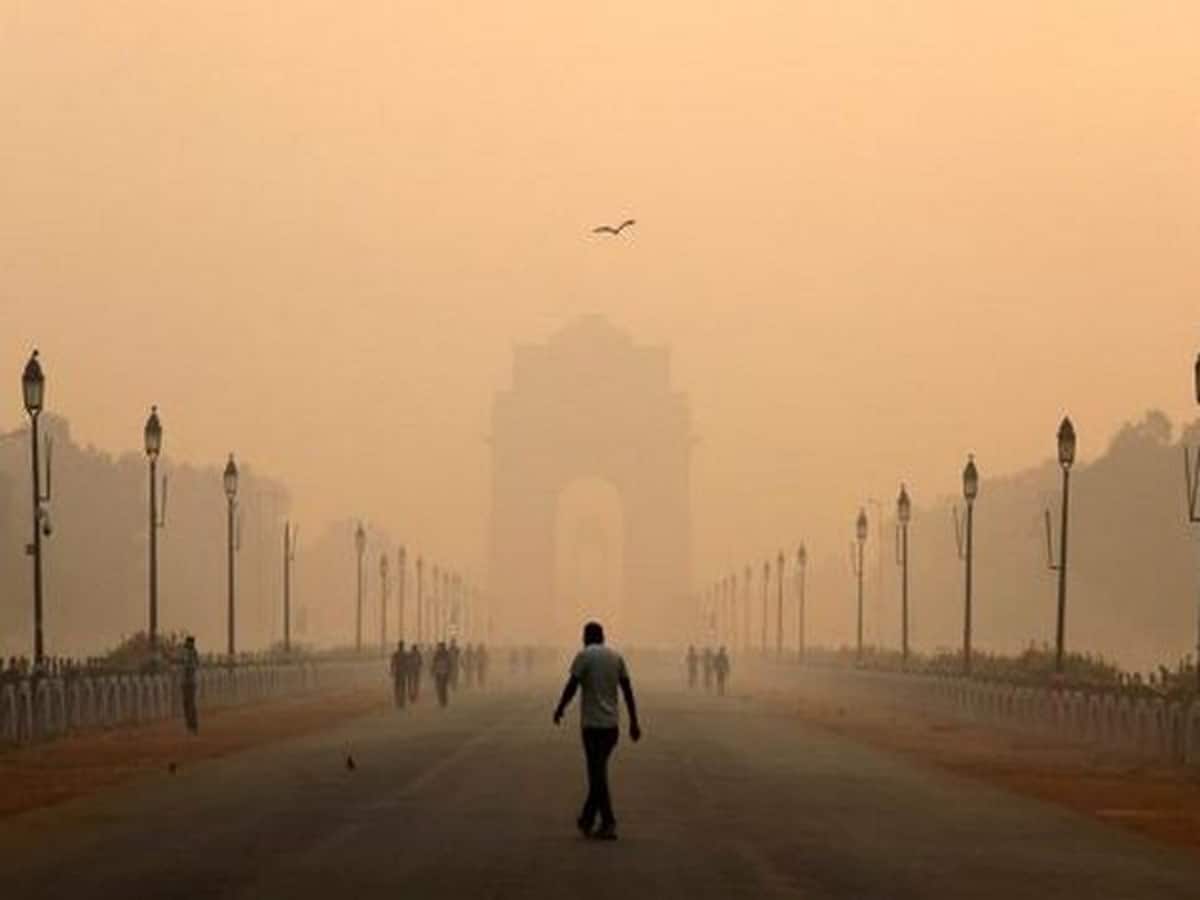
With the Air Quality Index hovering around 1,000 in some places in Delhi, it is truly alarming and makes it the most polluted city in the world. Masks are back.
It is an annual problem, but nothing seems to have been done in the last few years to bring about a permanent solution to the severe levels of air pollution which take place around this time of the year. Clearly, an environmental problem which affects every citizen, particularly children and the elderly that leads to serious health effects on people gets bogged down due to official apathy and petty politics.
Delhi Chief Minister Arvind Kejriwal has had to hurriedly announce the closure of all primary schools in the capital in view of the alarming state of Delhi’s air. Schools have been asked to go in for online classes.
The Opposition BJP in Delhi loses no time in pointing out that Kejriwal is more busy campaigning for elections in other states instead of looking after controlling pollution in Delhi.
They also point out that AAP is no longer blaming Punjab stubble burning as the main contributor to Delhi’s deteriorating air pollution because Punjab is now ruled by AAP part. Instead, they are trying to put the blame on Haryana, a BJP-ruled state.
Air Quality Index (AQI) has been declared “severe” in many places in Delhi. Ghaziabad, NOIDA, Gurugram all the neighbouring areas of Delhi-NCR have been seriously affected.
The Delhi Pollution Control Committee has banned the manufacture, storage, sale and bursting of fire crackers in the capital till January 1, 2024, in view of the high pollution levels in the National Capital Territory of Delhi.
This is clearly aimed at trying to control further increase of pollution during the forthcoming Diwali festivities.
The three major factors contributing to this state of affairs has been stubble burning in neighbouring states, vehicular emissions, and existing industrial pollution.
The AQI from 0 to 100 is considered good, while from 100 to 200 it is moderate, from 200 to 300 it is poor, and from 300 to 400 it is said to be very poor and from 400 to 500 or above it is considered as severe.
In its efforts to control air pollution only CNG, electric and BS-VI-compliant diesel buses have been allowed to ply between Delhi and the National Capital Region.
The situation is likely to worsen because the meteorological and climatic conditions are likely to continue to be unfavourable, according to the Indian Meteorological Department.
Unless it is absolutely essential doctors are asking people to remain indoors. People in all age groups including babies are turning up in hospitals with respiratory problems.
The government on its part has banned non-essential construction and demolition activities and placed Delhi on GRAP (Graded Response Action Plan) III stage.
The entry of light commercial vehicles and diesel trucks has also been banned in the national capital.
It is also banned to undertake earthwork for excavation and filling, including boring and drilling work. All structural construction work, including fabrication and welding operations and demolition work have been banned.
Loading and unloading of construction materials anywhere within or outside the project sites has been banned.
The ban also includes the transfer of raw materials either manually or through conveyor belts, including fly ash, movement of vehicles on unpaved roads, laying of sewer line, waterline, drainage work and electric cabling by an open trench system, cutting and fixing of tiles, stones and other flooring materials, grinding activities, piling work, water proofing work, painting, polishing and varnishing work.
Virtually all construction related work which can affect and create pollution in the air has been banned.
Stubble burning incidents in Punjab and Haryana are supposed to have had a drop this year but that does not seem to have had much impact on Delhi’s air pollution.
Interestingly to contribute its effort on decreasing air pollution the Board of Control for Cricket in India (BCCI) recently banned fireworks displays during the remaining matches of the tournament.
The government is also trying to further intensify the frequency of mechanised/ vacuum-based sweeping of roads, ensure daily water sprinkling along with dust suppressants, before peak traffic hours, on roads and right of ways including hotspots’ heavy traffic corridors and ensure proper disposal of the collected dust in designated sites/ landfills.
Air pollution is an issue which should be seen above the political and party lines and all political parties should take it seriously because the health of the public is involved. Only with a concerted and muti pronged effort can this kind of an environmental problem be solved. Let us hope that political parties instead of indulging in the blame game try to seriously take up the issue and solve it once and for all.
